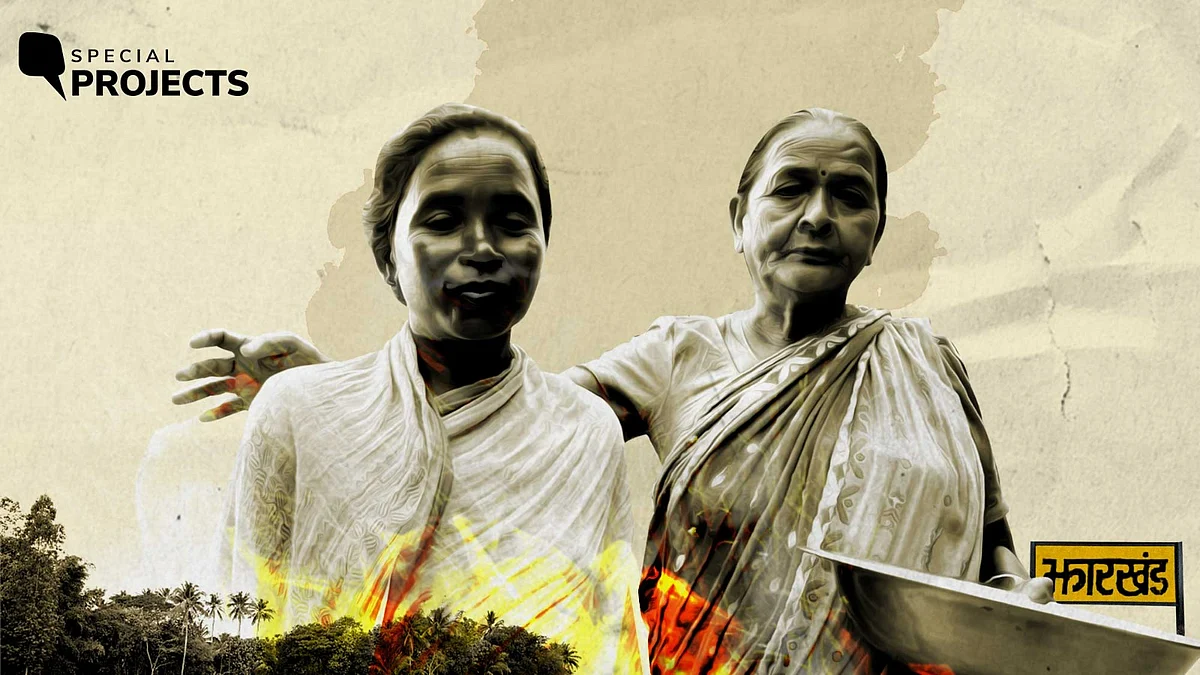'Will Fight Till End': Once Branded a 'Witch', Jharkhand Woman Now Saves Lives
Over the years, Chhutni Mahato has helped over 150 women accused of witchcraft in the rural parts of the state.

advertisement
Video Editor: Rahul Sanpui
Chhutni Mahato, a housewife and resident of Madkamdih village in Saraikela Kharsawan district of Jharkhand, ran away from her husband's house along with two of her three children on the intervening night of 4-5 August 1995. Chhutni was convinced that her in-laws, with the help of other villagers, will kill her. Her fears weren't unfounded.
Barely two days earlier, on 3 August 1995, the villagers had organised a panchayat and imposed a fine of Rs 500 on her – as they accused her of witchcraft. The next day, on 4 August, she was forced to eat human excreta.
Chhutni, who fled from her village after she overheard plans of her own killing in the dead of the night, was awarded the Padma Shri in 2021.
The Quint's search for The 'Witches' of Jharkhand led us to Chhutni. A three-part series, you can watch the first part here:
Now, back to the inspiring story of Chhutni.
Outspoken Chhutni Was Rallying Hard For Children's Education
Sitting under a mango tree outside her home in Saraikela Kharsawan district, about 120 km from Ranchi, Chhutni constantly monitors her keypad phone – a lifeline for victims seeking help against witchcraft allegations.
Narrating her story, Chhutni said that she was not a rebel but she wouldn't compromise with her children's education.
Her tiny rebellion was already becoming unbearable for her own family.
Apart from that, she would speak up for her right over the land, and the house, which ultimately turned the pot sour for her.
A Sick Girl, Allegations of Witchcraft and Torture
Instead of taking the girl to a hospital, the family members took her to an exorcist, but her health condition didn't improve. In fact, she became worse.
"After her health deteriorated... and with the connivance of exorcists, the villagers and my own family declared me a witch. A panchayat was convened against me, and a fine was imposed. But it didn't stop there. They started to torture me. I was beaten, dragged out of my house, and thrashed in front of everyone. Even after this, they were not satisfied, and so they tried to make me drink human excreta," Chhutni averred.
She ran away before she was killed at their hands – is what she alleges.
'An Excuse to Label My Mother a Witch'
Ironically, a year after Chhutni ran away from her village and took shelter at her brother's home, she found out that the girl wasn't sick, she was unmarried and pregnant – a taboo in most conservative societies.
Chhutni's son, Atul Mahato, who is a teacher by profession and is employed in a nearby government school, said:
What happened with Chhutni was not just a case of a sick girl or superstitious beliefs among the villagers, but a response to a threat presented by her efforts to educate her children, she claimed.
In 2001, six years after she fled her home, Chhutni decided to help other women like her who were victims of witchcraft allegations and witch-hunting.
Over the years, she has reportedly helped more than 150 witchcraft victims, without any financial assistance from outside.
She said that her 'fight is for a change' – and that she will not give up until that is eradicated from the roots.
"I am working not for money or fame but for change. Thousands of women have been killed by the people over witchcraft. There is no such thing... It's an excuse to suppress women and snatch away their rights and future. If we are witches, then let the government put up a notice in front of our house labelling us so, until then we will fight,” Chhutni said.
Watch her inspiring story.
(At The Quint, we question everything. Play an active role in shaping our journalism by becoming a member today.)